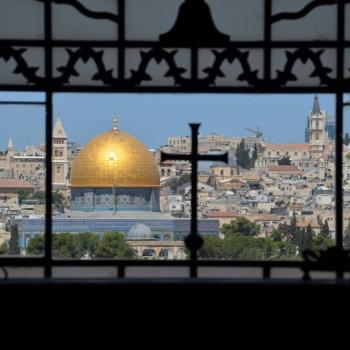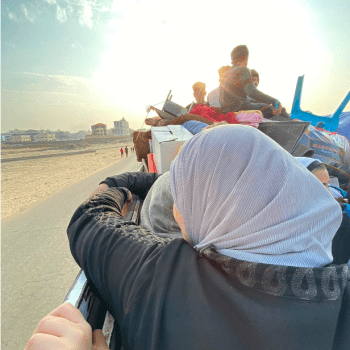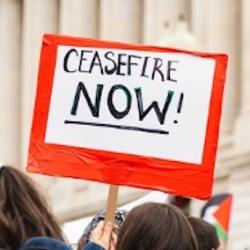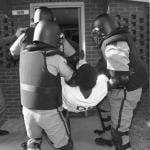Let’s jump right in and talk about the holy month of Ramadan – a month with greater challenges to the followers of Islam than most Christians could ever endure. I’m talking about getting really hungry. I’m talking about fasting.
(Note: my intention here is not to Christian-splain, but to describe my experiences of Ramadan as a Christian – including as I grew from a conservative to a progressive Christian, and to share some of my husband’s views as he also grew from a conservative to a progressive Muslim.)
Ramadan is a month-long adventure of fasting from sunrise till sunset – fasting not just from food, but also from water, coffee, smoking, cussing, and physical intimacy.
Here in our part of North Carolina, sunrise is 5:28 am, sunset is 7:41 pm on Tuesday, so my husband (a Muslim born in Palestine) will fast for about 14 hours. He will get up around 4 am to eat suhoor (the meal before the fast begins) and drink several cups of coffee. He might try to sleep a little before work, but the coffee might keep him awake. He’ll go all day without a crumb of food or a sip of water, and probably experience a caffeine withdrawal headache the first few days.
He’ll come home from work and probably nap until it’s time for iftar (the meal that breaks the fast), then chow down, drink coffee, and possibly crash again.
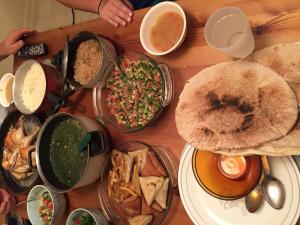
This pattern repeats for a month – only the sunrise gets earlier and earlier, and sunset gets later and later as the days go by. By the end of Ramadan, sunrise will be at 4:54 am, and sunset will be at 8:04 pm.
Ramadan is a long, arduous month for many Muslims – the loss of consecutive hours of sleep is exhausting; the exertion of working without refueling the body is taxing. Yet they look forward to the challenge all year and embrace it when it arrives.
Ramadan fasting is difficult but joyful, as Muslims pursue spiritual reflection, often intense times of prayer and worship, self-discipline, and empathy for the less fortunate.
If there are Muslims in your workplace or school, or where you shop, this will be their life for the next month – so be kind! If you want to be supportive, say to them, “Ramadan mubarak” (moo-BAR-ak) next time you see them. And try not to eat, drink, or smoke in front of them during the day, if at all possible!
Christians, could we survive such a test? (I’ve fasted for just one day at a time, and it was tough! The evening of feasting was a little less daunting.) Could we stand to improve our self-discipline? To grow in compassion? To spend more time with God? We can learn much and be inspired as we get acquainted with this Muslim spiritual practice!
I’ve had the privilege of experiencing 35 Ramadans with my husband, often with his family during 10 years living in Saudi Arabia (his family have lived there since 1967 as refugees from Gaza). We’ve also celebrated the season many times in the States – and let me tell you, Saudi Arabia was much more interesting!
I look forward to sharing lots of Ramadan stories and practices in the coming month, from my own experience and from people I know (Muslim and non-Muslim) who have also celebrated the season. Through these little glimpses into the Muslim world, I hope to show you a bit of what we all have in common, and what is unique about Islam. I believe that Christians can learn a lot from our Muslim neighbors.
For today, the first step on our little journey, know that Ramadan fasting is difficult but joyful, as Muslims pursue spiritual reflection, often intense times of prayer and worship, self-discipline, and empathy for the less fortunate.
(If you found this interesting, please jump on my mailing list and spend just a minute a day getting to know your Muslim neighbors!)
YOU MIGHT ENJOY READING:
Ramadan for Christians – a modest journey into Islam (intro to the series)
Interfaith harmony: the kinship of Christians and Muslims
The deception of “righteousness” (my journey out of conservatism, into progressivism)




